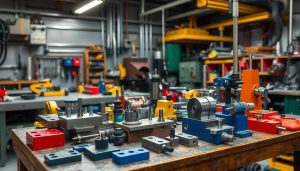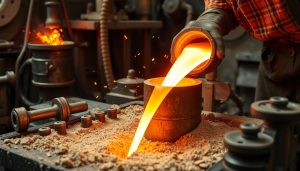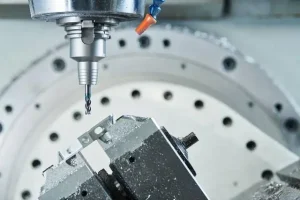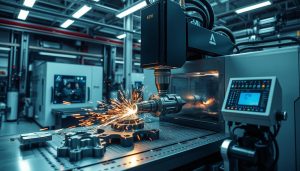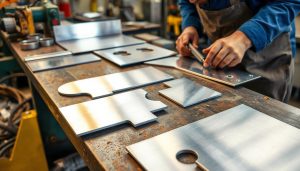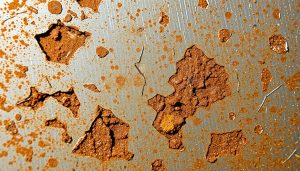Brass, a captivating alloy of copper and zinc, has long been a staple in the world of industrial and domestic applications. This versatile metal possesses a unique blend of properties that make it an invaluable material in a wide range of industries, from plumbing and construction to the arts and decorative design.
Brass is renowned for its corrosion-resistant nature, durability, and aesthetic appeal, making it a popular choice for a variety of products. Whether you’re exploring the world of brass alloys or seeking to understand its diverse applications, this comprehensive guide will delve into the intriguing realm of this remarkable material.
Key Takeaways
- Brass is a versatile metal alloy composed primarily of copper and zinc.
- Brass is valued for its corrosion resistance, durability, and aesthetic properties.
- Brass has a wide range of industrial, commercial, and decorative applications.
- Understanding the different types of brass alloys and their unique characteristics is crucial for selecting the right material for a project.
- Brass is a crucial material in various industries, including plumbing, construction, and the arts.
Brass Alloys and Their Types
In the world of metalworking, brass stands out as a versatile and highly sought-after material. Brass is an alloy, a combination of copper and zinc, and its precise compositions can vary significantly. This section will delve into the different types of brass alloys, exploring their unique characteristics and applications.
Alpha Brass
Alpha brass is the most common form of brass, containing up to 35% zinc. This alloy is known for its excellent malleability and corrosion resistance, making it a popular choice for decorative and plumbing applications. Alpha brass is easily machined and has a bright, lustrous appearance, often used in the production of faucets, door hardware, and other architectural elements.
Alpha-Beta Brass
As the name suggests, alpha-beta brass is a combination of alpha and beta brass phases. This alloy contains between 35% and 45% zinc, resulting in a more complex crystalline structure. Alpha-beta brass is stronger and harder than alpha brass, with increased tensile strength and wear resistance. It is commonly used in applications that require higher mechanical performance, such as automotive components and industrial machinery.
Beta Brass
Beta brass is the alloy with the highest zinc content, typically ranging from 45% to 55%. This composition gives beta brass a distinct gray-white color and a more brittle, less malleable character compared to its alpha and alpha-beta counterparts. Despite its reduced workability, beta brass is prized for its excellent strength, durability, and corrosion resistance. It finds application in high-stress environments, such as in the manufacturing of locks, valves, and other hardware components.
| Brass Alloy Type | Zinc Content | Key Properties | Typical Applications |
|---|---|---|---|
| Alpha Brass | Up to 35% | Excellent malleability, corrosion resistance | Decorative elements, plumbing fixtures |
| Alpha-Beta Brass | 35% to 45% | Increased strength, wear resistance | Automotive components, industrial machinery |
| Beta Brass | 45% to 55% | High strength, durability, corrosion resistance | Hardware components, valves, locks |
Understanding the unique properties of these brass alloys is crucial when selecting the right material for a project. By considering the specific demands of the application, designers and engineers can ensure the optimal performance and longevity of their brass-based solutions.
Properties of Brass
Brass, a captivating metal alloy, boasts an array of remarkable characteristics that make it a preferred choice in various applications. Its exceptional brass characteristics, including corrosion resistance, durability and strength, and malleability, contribute to its widespread popularity and versatility.
Corrosion Resistance
One of the standout metal properties of brass is its exceptional resistance to corrosion, particularly in marine environments. The alloy’s unique composition, blending copper and zinc, creates a protective oxide layer that shields it from the damaging effects of saltwater and other corrosive elements. This makes brass an ideal material for applications where exposure to harsh conditions is a concern, such as in plumbing, outdoor hardware, and marine equipment.
Durability and Strength
Brass boasts remarkable durability and strength, making it a reliable choice for a variety of applications. Its robust structure can withstand high levels of stress and pressure, ensuring the longevity and reliability of the products it is used in. This sturdy metal property makes brass a popular choice for mechanical and industrial applications, where dependability and long-term performance are crucial.
Malleability
The impressive workability of brass is another key characteristic that contributes to its widespread use. Brass’s malleability allows it to be easily shaped, bent, and formed, making it an ideal material for intricate designs and complex fabrication processes. This metal property enables the creation of a wide range of products, from decorative items to complex mechanical components, without compromising the integrity of the material.
These remarkable brass characteristics, combined with its unique metal properties and exceptional workability, have solidified brass as a versatile and sought-after material in numerous industries and applications.

Common Applications of Brass
Brass, a versatile alloy composed of copper and zinc, has found its way into a wide array of applications across various industries. From the practical to the decorative, brass showcases its remarkable versatility and resilience.
Plumbing and Electrical Uses
The corrosion-resistant and durable nature of brass makes it a popular choice for plumbing fixtures, such as faucets, valves, and piping. In the electrical industry, brass is commonly used for electrical components, including switches, terminals, and connectors, thanks to its excellent conductivity and strength.
Musical Instruments and Decorative Uses
The distinctive sound and aesthetic appeal of brass have long made it a staple material in the world of musical instruments. Brass is the primary component in the construction of wind instruments, including trumpets, trombones, and saxophones. Beyond its musical applications, brass also shines in the realm of decorative objects, from ornate chandeliers and door hardware to decorative accents and sculptures.
Mechanical and Industrial Applications
Brass’s durability, machinability, and resistance to corrosion make it an ideal material for a variety of mechanical and industrial applications. From gears and bearings in machinery to marine fittings and hardware, brass plays a crucial role in the smooth operation and longevity of these essential components.
The versatility of brass is undeniable, with its ability to seamlessly transition from practical, everyday uses to artistic and decorative applications. Whether it’s enhancing the sound of a beloved musical instrument or ensuring the reliability of critical industrial equipment, brass continues to demonstrate its enduring value across a diverse range of industries.
“Brass is the material of choice for a wide array of applications, from the functional to the aesthetic, thanks to its unique properties and timeless appeal.”
How to Select the Right Brass for Your Project
Choosing the right brass material for your project can be a crucial decision that impacts the success and durability of your final product. When selecting brass, it’s important to consider several factors, including the project’s specific requirements, environmental conditions, and cost-effectiveness.
To help you make an informed choice, here are some tips on selecting the appropriate brass for your needs:
- Assess Your Project Requirements: Carefully evaluate the performance characteristics your project demands, such as corrosion resistance, durability, or malleability. This will help you identify the brass alloy that best meets those specific needs.
- Consider the Environment: Think about the conditions your brass component will be exposed to, including temperature, humidity, or chemical exposure. Choose a brass alloy that can withstand the anticipated environmental factors.
- Balance Performance and Cost: Brass can vary in price depending on the alloy composition and manufacturing process. Aim to find a balance between the required performance and cost-effectiveness to ensure your project remains within budget.
- Consult with Material Experts: For complex projects or unique requirements, it’s advisable to consult with brass material experts who can provide guidance on the optimal brass selection based on your specific needs.
By considering these factors, you can select the right brass for your project, ensuring it meets the desired performance standards while staying within your budget constraints.

| Brass Alloy | Corrosion Resistance | Durability | Malleability | Cost |
|---|---|---|---|---|
| Alpha Brass | High | Moderate | High | Moderate |
| Alpha-Beta Brass | Moderate | High | Moderate | High |
| Beta Brass | Low | High | Low | Moderate |
By carefully considering factors like brass selection, material choice, and project requirements, you can make an informed decision and ensure the success of your project.
Why Shixinproto Is the Best Choice for Brass Material Solutions?
As a leading brass supplier, Shixinproto has earned a reputation for delivering high-quality materials and innovative solutions to diverse industries. With a deep understanding of brass alloys and their unique properties, the company offers a comprehensive range of brass products tailored to meet the specific needs of its customers.
Shixinproto’s commitment to quality is evident in its meticulous manufacturing processes and stringent quality control measures. The company’s state-of-the-art facilities and skilled team ensure that every brass component or solution they provide meets the highest standards of performance and reliability. Whether you’re in the market for brass fixtures, fittings, or customized parts, you can trust Shixinproto to deliver exceptional quality and reliability.
What sets Shixinproto apart is its ability to offer custom brass material solutions. The company’s engineering expertise and flexible manufacturing capabilities allow them to work closely with clients to develop bespoke products that address unique challenges. From custom brass alloy compositions to specialized fabrication and finishing, Shixinproto has the expertise to bring your brass material requirements to life.
